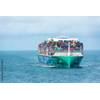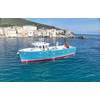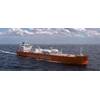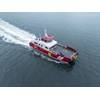Tankship ERS Capability Guidelines Published
The Oil Companies International Marine Forum (OCIMF) clarifies & recommends minimum scope of statutory Emergency Response Services (ERS).
According to current regulations oil tankers must have prompt access to computerized, shore-based damage stability and residual structural strength calculation programs.
Whilst other vessel types are not currently regulated, the principles outlined in this paper may apply to other vessel types such as gas and chemical tankers.
The means by which this access is arranged is not described in the legislation. The scope of services to be rendered is only described briefly and too vaguely to enforce a performance standard. Capability of the service provider is not addressed in the legislation.
Classification Societies and other entities offer such services to the ship operator, but variations in the level and scope of service provided have been noted. Operators may even elect to provide this service internally without the assistance of external service providers.
Emergency Response Services (ERS) are rarely used, and as such may not attract appropriate priority of emphasis in vessel management. Merely having a service agreement in place does not ensure that, when needed, the quality of service provided meets the need.
Recognising the potential hazards associated with the lack of consistency in the provision and utilisation of ERS, the OCIMF Marine Technical Sub-committee was tasked to form a Working Group to review current systems and practices in the industry, and to make any necessary recommendations for improvement.
The objective of these Guidelines is to clarify and recommend the minimum scope of ERS provision, and to give advice on suggested minimum requirements of competency and capability of ERS service providers. The report is available here.













